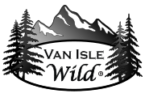Let’s have a little fun this month! While we are still under restrictions, the sun is shining and it’s always refreshing to try something new. I always attempt to tackle a complex subject in an entertaining way, but for May I am switching things up and testing your knowledge as gardening season is exploding with the onset of spring.
Do you know what makes the distinction between a fruit and a vegetable? We all know that tomatoes are actually fruit, but why? Did you know that pumpkins, cucumbers and avocados are fruits and not vegetables? Foods that bear the plant’s seeds are fruits, and the ones that don’t are vegetables. Which makes it interesting as Rhubarb is actually a vegetable! This rule excludes legumes however, as peas are still veggies. Confused yet? Strawberries are the only fruit that has seeds on the outside, and an average of 200 per berry!
Rosaceae, the Rose family has much more to offer than the beautiful flowers we adore especially on Valentine’s Day. Pears, apricots, apples, blackberries, hawthorn, quinces, plums, cherries, raspberries and peaches are all in the same family! In fact, even almonds are a variety of Rosaceae! Only a medium sized plant family, Rosaceae has 4,828 known species in 91 genera according to Wikipedia. All roses are edible, so when you take a moment to smell a rose, keep in mind all of the foods that share the same family, and maybe try a fresh petal or two!
We all know that microbes contribute to soil health, but did you know that there are more microorganisms in one spoonful of soil than there are number of people present on Earth? Bacteria, archaea, protozoa, algae and fungus are all parts of the 50 billion microbes in one tablespoon of soil, and they work together as the ‘stomachs’ of plants cycling nutrients and water. The plant roots help the microbes digest the nutrients, and in turn the plant is provided with essentials of life such as nitrogen and phosphorus.
The Incas brought Sunflowers to their temples in worship of the Sun God. Each sunflower head is comprised of thousands of tiny flowers on one stem. Amazing, but did you know there are sunflowers in space? Don Pettit, a US Astronaut brought some of his sunflower seeds to the International Space Station in 2012 and grew a sunflower in space! NASA has been developing growing technology in the ISS to provide future astronauts with sustainable food supplements.
While we are on the topic of flowers, I would like to mention that the Vanilla Bean actually comes from an orchid! The pod shaped fruit of the Vanilla Planifolia gives us that wonderful vanilla flavor, and although they resemble a bean, they are more closely related to the corn family than beans. There is a Sherry Baby orchid variety that smells like chocolate, the Phalaenopsis Violacea orchid smells like cinnamon and the Golden Elf variety smells of fresh lemon.
A little news that may be disappointing for some, if you pick up those slugs and toss them thinking you have won, I am sorry to say they will be back! Slugs and snails have a homing instinct, so you need to get them over 20m away which means you would need a pretty good arm! They remember exactly where your garden plot is, so the best remedy is to make a beer trap or borrow some ducks.
A little more on the wild side, do you know what are the longest living organisms on the Earth? Trees! Did you know that Gingko Biloba is one of the oldest living tree species dating back over 250 million years? Another long living species is the Dawn Redwood at over 150 million years. What is most profound is that both of these species were actually discovered in fossils before they had ever been found alive!
Now for the real wild side! No article of amazing fun gardening facts would be complete without telling you about the “Bare Bum Test” which is documented in many old gardening texts and books, and was a common method used to measure if the soil temperatures were warm enough to sow seeds. One would simply pull down their pants and if the soil was warm enough to sit on, it was declared warm enough for planting. Although it is very important to not plant too early, please spare your neighbours and use a meat thermometer! Soil temperature should be between 15-20C (60-70F) for most seeds to be safe!
Hope you learned a little and maybe had a laugh or two!
Angela Hicke – Van Isle Wild
All Rights Reserved – © Copyright 2021

